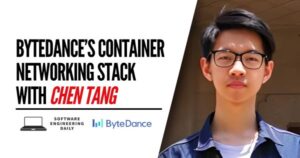How You Can Advance Your Skills Beyond Salesforce Core From The Development Side

The biggest Customer Relationship Management (CRM) platform available for businesses, from big to small, is Salesforce. Over 150,000 companies use it to grow their businesses, scale e-commerce operations, segment and compare their sales, provide customer service, etc. These capabilities depend on the multiple divisions of its large and growing ecosystem. This article walks through the opportunities for technical advancement from core roles like Salesforce Administrators to Salesforce Developers and beyond.
There are compelling reasons to become a Salesforce Developer besides the empowerment of learning new skills. A Salesforce Developer, according to Salesforce’s training platform Trailhead, can expect to earn $108,000 USD a year on average! Also, 89,000 Salesforce Developer jobs were posted in 2018, meaning their annual growth was 208% relative to the developer market the last five years (trailhead.salesforce.com).
Many Salesforce jobs use the already-robust Salesforce infrastructure to build business applications without programming. For example, a Salesforce Administrator sets up, configures, and maintains Salesforce applications. They know how to customize application layouts, fields, and business processes within secure environments, maintain and import clean data, create reports and dashboards, and set up workflow automation. Salesforce Administrators accomplish all this without code by combining Salesforce’s visual tools with concepts from the Salesforce Administrator Certification.
However, administrators can go even further by learning to extend the platform with code. Trailhead, Salesforce’s training platform, provides plentiful resources with which to start this journey. The administrator that layers some technical certifications to their skillset could better understand when to approve using code to enhance customized applications or more correctly validate any technical solutions proposed to them. Some of the available certifications are Platform App Builder, CPQ Specialist, and Security Specialist.
Whether by upskilling from being a Salesforce administrator, or by jumping right into development, being a Salesforce developer gives them a higher earning potential and deeper understanding of Salesforce’s capabilities. The Salesforce pre-built applications, in themselves, already provide a lot of CRM functionality, but many businesses require complex solutions that the pre-built applications don’t cover. Some of the technical solutions that the Salesforce developer works with include: creating more custom web and email services, performing complex validations over multiple projects, creating custom logic that occurs over entire transactions rather than a single record or object, and attaching custom logic to operations that originate elsewhere in the program (developer.salesforce.com). Salesforce developers do this with the strongly typed, object-oriented Salesforce programming language Apex. The syntax looks like a mix of Java and C#, and is interpreted, executed, and controlled entirely by the Salesforce app development platform called the Lightning Platform.
You can see that a core administrator role has the opportunity within their field to move into more technical jobs. This shows that from the development side, there is a spectrum of skills that core roles can learn to advance their career. For many roles the opportunity to learn and progress doesn’t stop here. At this point our example administrator, now an advanced administrator, knows basic Apex capabilities and understands the greater scope of their programming potential. From here they are equipped and motivated to pursue the more advanced credentials of the Salesforce Developer.
Usually, if you have experience using Salesforce and some to no technical experience beforehand, you can become a developer by completing a developer certification (or several) through Trailhead. There are many currently available Salesforce Developer certifications, as shown below.
These certifications validate skills like core functional Salesforce tools available on the platform, Lightning Web components, JavaScript, Apex, Object-Oriented Programming, as well as specific Salesforce query languages like SOQL and SOSL.
Let’s say someone decides to begin the JavaScript Developer I certification. It requires earning one qualification using Lightning Web Components, and one proctored multiple choice exam for JavaScript.
Lightning Web Components is the Salesforce implementation of lightweight frameworks built on web standards. Learning how to use Lightning Web Components means learning to use a set of over 70 UI components that are all built as custom elements, interpolating declarative access to Salesforce data and metadata seamlessly within existing or new apps, and implementing the Salesforce User Interface API to connect the former parts into a super productive and simple to code program.
The proctored exam covers specific JavaScript utilization for client-side code. Within custom Lightning Web Components, a Salesforce developer can use JavaScript just as you would in any other context, barring slight procedural requirements enforced by Salesforce. You can also share JavaScript code across components and create Content Security Policy (CSP) trusted sites for third party API calls (developer.salesforce.com).
Salesforce’s Trailhead provides opportunities to keep growing. Certifications build on top of each other and often crossover. Oftentimes people pursue one certification while remaining to work and gain experience in their current role. Anybody’s career trajectory with Salesforce really only depends on their motivation and willingness to branch out into a new field or dig deeper into their current one.
















